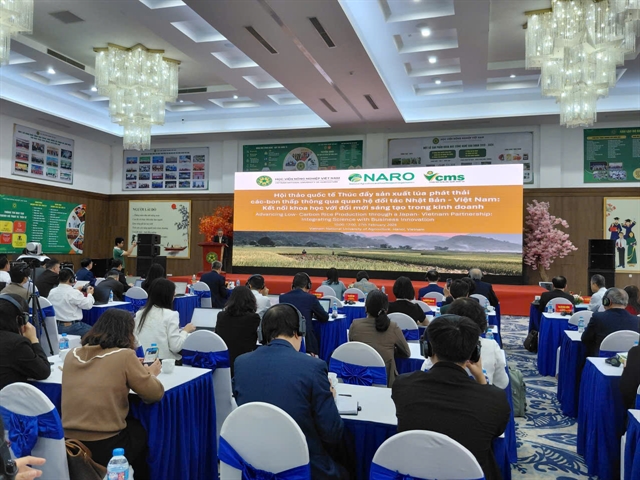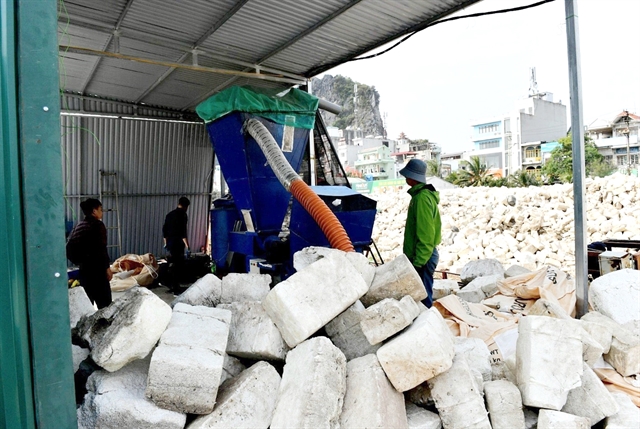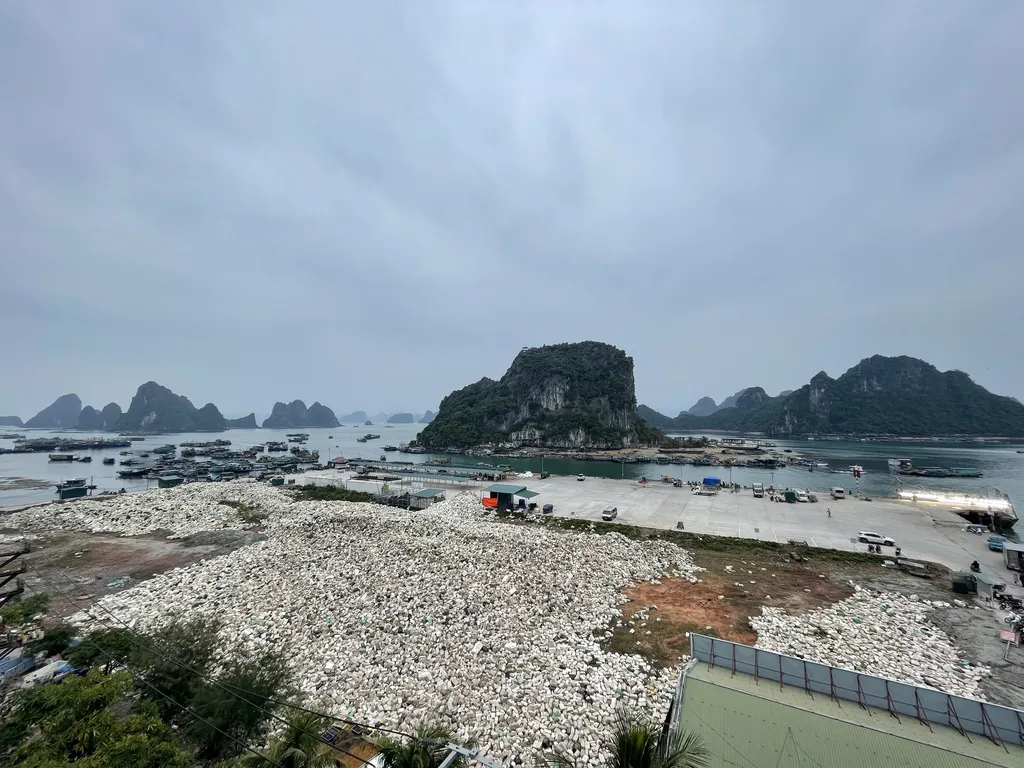 Environment
Environment

 |
| Recycling of foam into solid plastic pieces in Quảng Ninh Province. — VNA/VNS Photo Thanh Vân |
QUẢNG NINH — More than 6.85 million aquaculture floating cages made from foam in the northern province of Quảng Ninh have been replaced by those made from high-density polyethylene plastic, benefiting both the environment and farmers.
As of November last year the province had more than 32,000ha of aquaculture farms, and they had replaced 98 per cent of foam cages with plastic.
HDPE plastic is environmentally friendly, durable, flexible, non-oxidising, resistant to big waves and strong winds and can withstand high loads.
Local authorities have destroyed the foam cages without causing pollution.
In Cẩm Phả City and Hạ Long City, foam pieces have been sent to industrial zones and cement plants to be used as fuel to recover heat and save coal.
When burned at high temperatures, foam is converted completely to heat, and does not affect the environment.
It is then burned into clinker for cement production.
In Quảng Yên Town, the foam cages that need to be destroyed have been transported by a HDPE cage supplier in Bắc Ninh Province for recycling.
 |
| Two million foam pieces are being recycled at Cái Rồng Port. — VNA/VNS Photo Thanh Vân |
In Vân Đồn District, over two million cages have been collected at Cái Rồng Fishing Port, and will be processed by the VietCycle Joint Stock Company, which recycles domestic scrap for free.
The company uses a crushing, heating and pressurized gas compression line to create solid plastic, which is then converted into other products.
Phạm Văn Tùng, a technical expert at the VietCycle Joint Stock Company, said on knowing that Vân Đồn District wants to recycle more than two million pieces of foam, the company took the production line there since transporting millions of bulky foam floats would take a lot of effort and money.
In the one-odd month since it began, the company has recycled around 40 tonnes of foam and another 250 tonnes are awaiting processing, he said.
It is installing a new line with a higher capacity to increase efficiency, and expects to do so in the second quarter of 2024, he told Vietnam News Agency.
He said the line does not affect the environment or even cause noise pollution, and is easy to transport.
After being cleaned, the foam pieces are crushed, heated and compressed to form solid plastic pieces of more manageable size than the floats.
The pieces are transported to factories in Hải Phòng and Hà Nội to clean them further before being used as inputs for waste plastic products, or so-called black plastic, he said.
He said Styrofoam is also a form of plastic, and so when processed by burning it normally gives off black smoke, polluting the environment.
Gathering more than two million foam cages at the Cái Rồng fishing port not only occupies a lot of space but also affects the environment and poses fire and explosion hazards.
Đặng Ngọc Thiết, head of the port and harbor section at the Vân Đồn District Agricultural Technical Service Centre, said that a large fire broke out in the port’s temporary foam cage storage yard in May last year.
The centre has had to establish a 24-hour monitoring team with surveillance cameras to deal with fire risks.
Bùi Văn Hường, chairman of the Cái Rồng Town People's Committee, hoped the company would speed up recycling of the foam stored at the port.
Local authorities hope the company will invest in more production lines with larger capacities to soon recycle the remaining foam floats. — VNS




